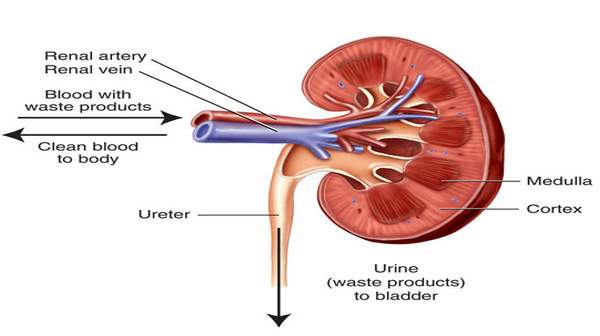What's in this article?
Acute Kidney Failure Overview
Acute kidney failure occurs when your kidneys suddenly become unable to filter waste products from your blood. When your kidneys lose their filtering ability, dangerous levels of wastes may accumulate and your blood’s chemical makeup may get out of balance.
Acute kidney failure also called acute renal failure or acute kidney injury develops rapidly over a few hours or a few days. Acute kidney failure is most common in people who are already hospitalized, particularly in critically ill people who need intensive care.
Acute kidney failure can be fatal and requires intensive treatment. However, acute kidney failure may be reversible. If you’re otherwise in good health, you may recover normal kidney function.
Causes of Acute Kidney Failure
Acute kidney failure can occur for many reasons. Among the reasons are:
- acute tubular necrosis (ATN)
- autoimmune kidney diseases such as acute nephritic syndrome and interstitial nephritis
- urinary tract obstruction
Low blood pressure can reduce blood flow and cause damage to your kidneys. These health problems can decrease blood flow to your kidneys:
- burns
- dehydration
- hemorrhage
- injury
- septic shock
- serious illness
- surgery
Certain disorders can cause clotting within your kidney’s blood vessels:
- hemolytic uremic syndrome
- idiopathic thrombocytopenic thrombotic purpura (ITTP)
- malignant hypertension
- transfusion reaction
- scleroderma
Some infections can directly injure your kidneys, such as:
- septicemia
- acute pyelonephritis
Pregnancy can cause complications that harm the kidneys:
- placenta previa (in pregnancy)
- placenta abruption (in pregnancy)
Signs and symptoms of Acute Kidney Failure
Signs and symptoms of acute kidney failure may include:
- Decreased urine output, although occasionally urine output remains normal
- Fluid retention, causing swelling in your legs, ankles or feet
- Drowsiness
- Shortness of breath
- Fatigue
- Confusion
- Nausea
- Seizures or coma in severe cases
- Chest pain or pressure
Sometimes acute kidney failure causes no signs or symptoms and is detected through lab tests done for another reason.
Risk Factors for Acute Kidney Failure
Chances of acquiring acute renal failure are greater if you are elderly or have the following long-term health problems:
- heart failure
- obesity
- Being hospitalized, especially for a serious condition that requires intensive care
- Advanced age
- Blockages in the blood vessels in your arms or legs (peripheral artery disease)
- Diabetes
- High blood pressure
- Heart failure
- Kidney diseases
- Liver diseases
If you are ill or are being treated in a hospital intensive care unit, you are at an extremely high risk for acute kidney failure. Being the recipient of heart surgery, abdominal surgery, or a bone marrow transplant can also increase your risk .
Acute Kidney Failure Treatment
Treatment of acute renal failure depends partly on the cause and extent of the failure. The patient should be referred to a kidney specialist (nephrologist) for care. The first goal is to pinpoint the exact cause of the kidney failure, as that will partly dictate the treatment. Secondly, the degree to which accumulating wastes and water are affecting the body will impact treatment decisions about medications and the need for dialysis.
Antibiotics may be prescribed to treat or prevent any infections that occur at the same time. Diuretics may be used to help your kidneys eliminate fluid. Calcium and insulin can be given to help avoid dangerous increases in your blood potassium levels.
Dialysis might be needed, but is not always necessary. Dialysis involves diverting blood out of your body into a machine that filters out waste. The clean blood is then returned to your body. If potassium levels are dangerously high, dialysis can save your life. Dialysis is used if there are changes in your mental status, or if you stop urinating. You may also need dialysis if you develop pericarditis, inflammation of the heart. Dialysis can help eliminate nitrogen waste products from your body.





